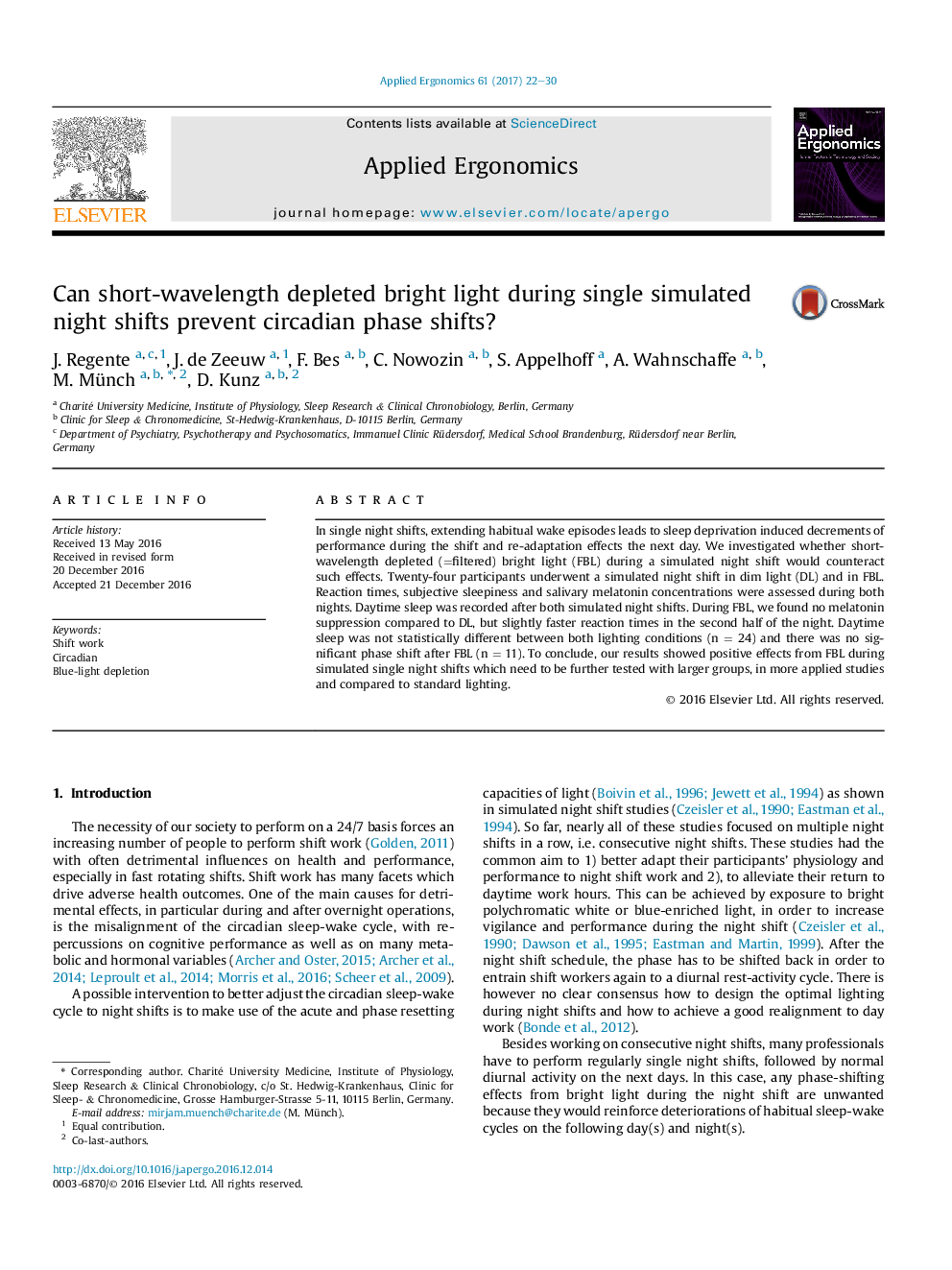| Article ID | Journal | Published Year | Pages | File Type |
|---|---|---|---|---|
| 4972017 | Applied Ergonomics | 2017 | 9 Pages |
Abstract
In single night shifts, extending habitual wake episodes leads to sleep deprivation induced decrements of performance during the shift and re-adaptation effects the next day. We investigated whether short-wavelength depleted (=filtered) bright light (FBL) during a simulated night shift would counteract such effects. Twenty-four participants underwent a simulated night shift in dim light (DL) and in FBL. Reaction times, subjective sleepiness and salivary melatonin concentrations were assessed during both nights. Daytime sleep was recorded after both simulated night shifts. During FBL, we found no melatonin suppression compared to DL, but slightly faster reaction times in the second half of the night. Daytime sleep was not statistically different between both lighting conditions (n = 24) and there was no significant phase shift after FBL (n = 11). To conclude, our results showed positive effects from FBL during simulated single night shifts which need to be further tested with larger groups, in more applied studies and compared to standard lighting.
Keywords
Related Topics
Physical Sciences and Engineering
Computer Science
Human-Computer Interaction
Authors
J. Regente, J. de Zeeuw, F. Bes, C. Nowozin, S. Appelhoff, A. Wahnschaffe, M. Münch, D. Kunz,
